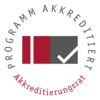International Economics
- DegreeMaster of Arts (M.A.)
- Type of studyFull-time study
- Standard period of study3 Semester
- Commencement of studiesWinter semester (1 Oct)
- Credits (ECTS)90
- Language of instructionEnglish
- Department / Central InstituteDepartment of Business and Economics
Degree programme
This degree programme is intended for all those with an interest in global economic problems and who seek to develop an understanding of international economic policies, international economic relations and the functioning of the international currency system.
The Master’s degree programme International Economics offers an in-depth exploration of international macroeconomic issues and problems, like global and regional imbalances, macroeconomic instability, inequality and ecological constraints of economic activities. The programme will also impart skills in independent academic working and intercultural communication.
Economic globalization requires an ever-growing number of specialists able to think beyond borders and view the economy in its global context. Therefore, this consecutive degree programme imparts a critical understanding of current debates in economics, including a number of heterodox approaches, and is seeking to adopt a pluralist perspective. The Master’s degree programme promotes an understanding of international economic contexts and incorporates theoretical controversies, historical developments and up-to-date developments. Adopting an interdisciplinary perspective, it seeks to stress the importance of social and political institutions for economic development.
Professional field
The graduates of this degree programme hold all the qualifications required to work in state and private organizations, internationally-orientated companies, economic associations and labour unions. The degree »Master of Arts« (M.A.) also qualifies its holder for the higher levels of public administration and for national and international doctoral programmes.
Degree structure
In their first semester, students attend basic courses at the Master's level. The second semester allows for a specialisation. The third semester is reserved for the master's thesis and the oral master's examination, unless an internship or a semester abroad is completed. In this case, the study programme is extended from three to four semesters.
The first semester is dedicated to teaching the foundation courses Macroeconomics, International Economics, Development Economics and Global Governance at a Master's level.
In the second semester, students take part in a project seminar focussing on Current Issues in International Economics. For further three seminars, students choose from a number of electives, such as Distribution and Growth, Econometrics, The Political Economy of Modern Capitalism, Modelling in Ecological Economics, International Political Economy, Feminist Economics, or Regional Economic Integration.
- Bachelor degree in economics or an equivalent course of study
- At least 210 credit points. Applicants with 180 credits will be required to obtain the additional 30 credits, for example by completing a placement in the third semester (the programme will then last four semesters),
- Evidence on having completed undergraduate courses in Microeconomics, Macroeconomics and International Economics
- English language skills on a high B2 level proved by a standardised test, e.g. TOEFL (iBT minimum score 83), IELTS (minimum score 6.0), TOEIC Four Skills (minimum score 1200), PTE Academic (minimum score 67), Cambridge English Scale (minimum score 170), Oxford Test of English (minimum score 126), UNIcert II
If you have studied in the higher education system a minimum of two semesters entirely in English, this can be accepted as equivalent (please provide proof with your application). You do not need to provide further English certificates if you hold a GMAT. - Letter of motivation in English
- Curriculum vitae in English
- How to apply for this programme
- FAQs: Applying for Master degree programmes at the Department of Business and Economics
Applicants with a degree from a German university:
15.04.-15.06.
Please, apply online through the HWR Berlin application platform (S.A.M.).
Applicants with a degree from an university abroad:
15.03.-15.05.
Students with a Non-German Bachelor degree apply at uni-assist e. V.
The Master programme International Economics participates in the international Master Economic Policies in the Age of Globalisation (EPoG2) and in the international Erasmus Mundus Master Economic Policies for the Global Bifurcation (EPoG-JM).
Students who acquired less than 210 European Credit Transfer System [ECTS] points in their Bachelor course must obtain the missing credit points for example by way of an integrated period of practical training, for which 30 ECTS points are awarded. This internship semester is scheduled in the third semester, after the theoretical phase and before the completion of studies. The master programme will thus last four semesters.
The content of the internship has to relate to the focus of your master studies. After enrollment you can place a request for accreditation of previous work experience or internships.
Alternatively, the missing 30 ECTS may be gained through studies abroad during your third semester. More information will be given after the start of studies upon request.
You will not have to acquire extra ECTS if your Bachelor programme was not accredited according to the ECTS point system. This generally holds true for non-EU-study programmes.
Students who have already gained 210 ECTS points in their Bachelor and completed an internship may do an additional voluntary internship in their third semester.
All information on the offered modules and lectures can be found on the online campus management system S.A.M. (Study Administration Management).
All regulations, forms and documents can be found in your faculty site.
Fees and grants
- Tuition fees
None
- Semesterfee
ca. € 300 per semester (incl. local transport semester ticket)
Information for prospective students
ZR Studierendenservice
Allgemeine Studienberatung
+49 30 30877-1919
+49 30 30877-1919
Advice for applicants and students
Department of Business and Economics
Dagmar Hofmann
Studienbüro 3
+49 30-30877-1425
Admission and enrolment
Office for Applications, Admissions and Enrolment
+49 30 30877-1800
bbzi@hwr-berlin.de
Office hours:
Mon 14.00–16.00
Wed 10.00–12.00
Thu 14.00–16.00
Academic Director

Department of Business and Economics
Prof. Dr. Eckhard Hein
Professor of Economics, in particular European Economic Policies
